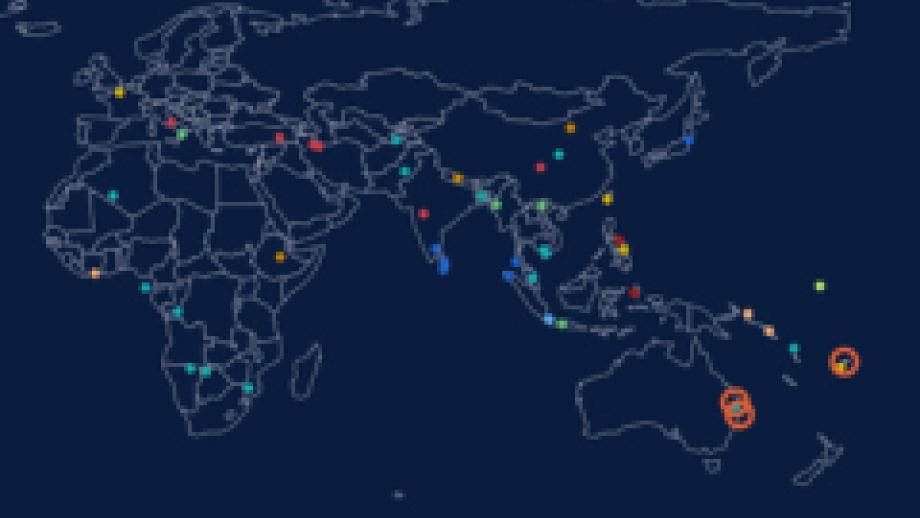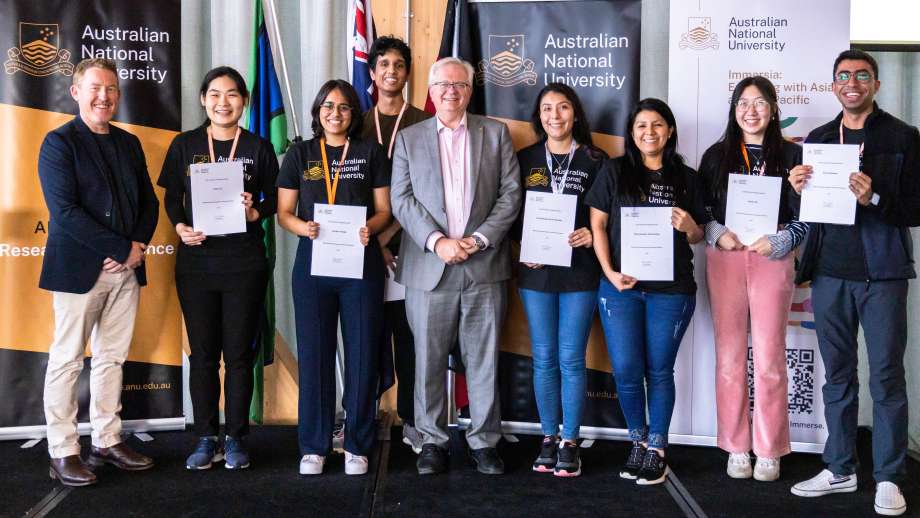Indigenous Development Futures: Strategies for self-determination and innovation
There has been an international upsurge in attention by Indigenous peoples to matters of self-determined development. In Australia, many Indigenous groups are now building on their successes in securing property and cultural heritage rights, to govern development to get the outcomes they desire. There is heated debate, however, about what constitutes 'development' and 'sustainable development', and from whose perspective. Propelling this debate has been the global questioning by Indigenous peoples of the concept's colonial legacies, and its implicit acceptance of particular kinds of growth at the expense of Indigenous modes of development.
In that context, the United Nations Permanent Forum's Indigenous Expert Working Party has reframed the concept as 'development with culture and identity'. This approach proposes a more holistic approach that seeks to build on collective rights to secure greater self-determination over their lands and resources. It builds on Indigenous governance and traditions, but is also forward-looking and so often includes innovative solutions.
In this webinar, four distinguished Australian First Nations speakers talk from their own experience, to explore how Indigenous peoples are working, collectively and individually, to achieve self-determined sustainable development with culture and identity.
The Panellists will share their insights into questions including: · What are Indigenous understandings of, and priorities for 'development' and 'sustainable development'? · How does 'culture and identity' align with 'development'? · What role can governance play in development outcomes? · What innovative strategies are being designed for Indigenous-led development in Australia, and what can we learn from them? · What are the big challenges and opportunities for the future?
Indigenous Chair, Mr Jason Field, will facilitate a conversation with panel members to draw out key messages. There will be a short time for questions from the audience at the end. |
|
About the speakers
Professor Peter Yu is a Yawuru man from Broome in the Kimberley region in North West Australia with over 40 years' experience in Indigenous development and advocacy in the Kimberley, and at the state, national and international levels. As an advocate for the social, cultural and economic advancement and well-being of Kimberley and other Aboriginal communities for his entire career, Prof Yu has been instrumental in the development of many community-based organisations and initiatives which have had an enduring influence on the Kimberley region. He was Executive Director of the Kimberley Land Council, and a member of the national leadership team negotiating the Federal Government's response to the 1992 Mabo High Court judgement. Prof Yu was a key negotiator on behalf of the Yawuru Native Title Holders with the Western Australian Government, and recently was Chief Executive Officer of the Yawuru Corporate Group. Prof Yu is the current inaugural Vice-President, First Nations Portfolio at the Australian National University. He is also deputy Chair of the Northern Australian Indigenous Land and Sea Management Alliance, Board member of Watertrust Australia, Trustee of the Princes Trust Australia, Chair of the Australian Advisory Group to Rio Tinto and Director on the Jawun Board.
Jahna Cedar is a Nyiyaparli/Yindjibarndi woman from the Pilbara region of Western Australia. She has worked for over 20 years advocating for equal rights and reconciliation of Indigenous people and has represented Indigenous Australia at the United Nations in New York on three occasions. In 2012, Jahna was the youngest person to be elected into the West Australian International Women's Day Hall of Fame, and in 2017 won Business news 40 under 40, First amongst Equals. Jahna was also awarded Telstra Business Women Awards WA - For Purpose and Social Enterprise Winner in 2017. Jahna is a Board Director of the Australian Indigenous Governance Institute, and the current Director of IPS Management Consultants, WA. Jahna's corporate experience includes 16 years in business/human resources management and consultancy, including the implementation of organisational and change management strategies, projects and policy development, in both the Not for Profit and Private sector.
Kevin Smith (Chief Executive Officer, QSNTS) holds traditional connections to Ugar (Stephen Island) and Erub (Darnley Island) in the Torres Strait, and has over 28 years of professional experience in Indigenous affairs. He has held senior positions with the National Secretariat of Torres Strait Islander Organisations, the Brisbane Aboriginal and Torres Strait Islander Legal Service, the National Native Title Tribunal, Aboriginal Hostels Limited and the National Native Title Council. Kevin has filled the role of Chief Executive Officer of Queensland South Native Title Services ((QSNTS) since 2008. He holds qualifications in both law and business management from the University of Queensland, and was admitted as a solicitor in 1994.
Leah Armstrong is a Torres Strait Islander woman with over 20 years' business and not-for-profit experience working collaboratively with governments, community and the private sector. Leah was the founding CEO of Yarnteen, one of Australia's most successful urban Indigenous businesses, and has played a pivotal role in national Indigenous affairs as CEO of Reconciliation Australia; Director of Indigenous Business Australia; Chairperson of Supply Nation; Director of The Wollotuka Centre of Indigenous Engagement and Advancement at the University of Newcastle; and as a member the Business Council of Australia's Indigenous Taskforce. Leah is currently the Co-chairperson / Managing Director of First Australians Capital.
CAEPR Seminars
https://caepr.cass.anu.edu.au/events
Enquiries
Centre Administrator on (02) 6125 0587 or email: caepradmin.cass@anu.edu.au
Location
Speakers
- Peter Yu
- Jahna Cedar
- Kevin Smith
- Leah Armstrong
- Jason Field



